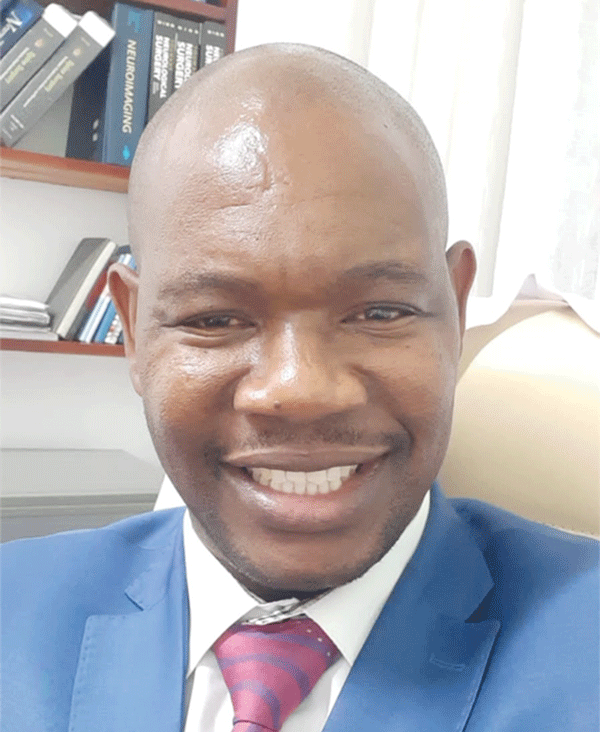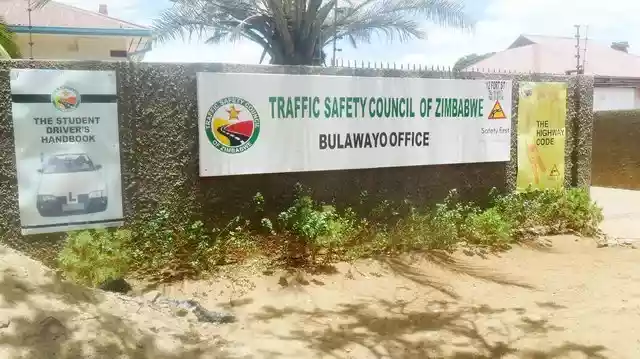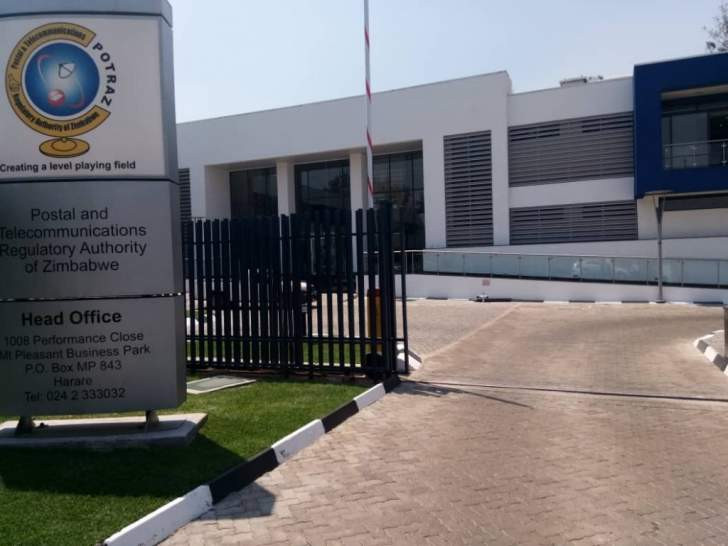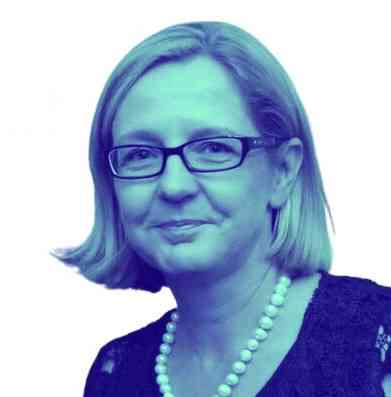
HEALTH specialist Kelvin Nemayire (40), a neurosurgeon, says low-income citizens in the country cannot afford healthcare services, a situation that has resulted in a high number of people in communities living with disability.
Nemayire (KN) told NewsDay (ND) senior reporter Miriam Mangwaya in an interview that Zimbabwe does not have adequate neurosurgeon specialists, resulting in disabilities which could have been avoided if people had access to specialist medical care.
Nemayire, who is a senior serving member of the Zimbabwe Defence Forces, bemoaned centralisation of neurosugeons in Harare, saying this was excluding patients from other provinces in the country from accessing medical care. Below are excerpts of the interview.
ND: What inspired you to become a neurosurgeon?
KN: Well, I always wanted to become a medical specialist from childhood, and I specifically fell in love with this discipline of neurosciences and neurosurgery.
Surgery in my opinion offers practical solutions to patients’ problems and usually the result can be life-changing. I also discovered that neurosurgery is one of the most difficult specialities in the medical field.
As a matter of principle, I chose it, driven by the desire to save people from disabilities. It is, however, sad that despite the fact that neurosurgeons are crucial to public healthcare, I realised there are very few practitioners in Zimbabwe and in Africa in general.
This gap has influenced my dedication to offer my services as a neurologist. I have been serving as a specialist neurosurgeon for two years and I became the founder of Brain and Spine Clinic Group, which runs four clinics in Harare, Rusape, and Mutare to decentralise health services.
- Chamisa under fire over US$120K donation
- Mavhunga puts DeMbare into Chibuku quarterfinals
- Pension funds bet on Cabora Bassa oilfields
- Councils defy govt fire tender directive
Keep Reading
ND: What are the barriers to ordinary people in accessing specialist health services such as those your offer?
KN: Poverty is one of the major barrier to access to adequate health care services. Low-income earning citizens usually do not afford the surgeries if they have health complications.
Another major challenge is that of inadequate health personnel as a result of a continuous brain drain. This means we still remain severely depleted on nurse-patient and doctor-patient ratios.
Due to shortages of health personnel, members of the public are forced to travel abroad, to India and China for instance, seeking medical attention.
But I am glad that government is doing all it can to improve the conditions of service of all healthcare personnel and to curb the brain drain.
A revamp in infrastructure should lead to an improvement in accessibility to healthcare services by the populace.
Ordinary people cannot afford to subscribe to health insurance, while others are merely reluctant to insure their health. Health insurance is a culture that is lacking among Africans in general.
This is due to lack of awareness and inculcation of health fundamentals in the school curriculum.
Cultural beliefs have resulted in some shunning modern healthcare in preference of traditional solutions, which has, however, resulted in serious health complications.
ND: Which age group seeks your services mostly?
KN: Generally, all age groups in the country are in need of neurosurgeons, that is, from a newly-born baby to the most senior citizens.
They all present varying conditions affecting them. Infants usually come to us with congenital conditions, while others come with head and spinal injuries from falls from heights, motor vehicle accidents, and sports like rugby and soccer.
Some get injured from physical child abuse by parents or guardians. There are lots of brain and spine tumour cases among infants.
In the middle ages category, which is the working class, the conditions are generally the same, except that we start seeing more of backaches, spinal fractures and various forms of head injuries resulting from various accidents.
Occupational hazards such as artisanal mining accidents and assaults are very common in male patients. Such health problems, when left unattended, may lead to permanent disability.
ND: You mentioned a myriad of challenges that are faced by members of the public in accessing specialist services. How does that affect the general development of the country?
KN: A healthy nation is a wealthy nation, so failed timeous access to specialist neurosurgical services means lost potential of the skilled and general workforce for the nation due to absenteeism from work, disability or death.
This negatively impacts on the growth and development of any nation.
If we have a number of people who are not able-bodied, it means the government has to spend more on providing for such people.
Some people in need of medical care have access to health services, but I must be honest and say, it is not adequate and readily available for all.
For your own information, there are only 12 specialist neurosurgeons in Zimbabwe and they are mainly based in Harare, which leaves the rest of the country excluded from access to healthcare.
There is only one neurosurgeon based in Matabeleland province, and I am offering services in Manicaland province.
What it literally means is that out of the 10 provinces, only three have neurosurgery services available, resulting in the likelihood that some people are forced to grow up with disabilities which could have been avoided, as I have said earlier.
I am, however, hopeful that in the near future, services will be accessible to all areas because government is currently training more health personnel to solve this disparity, and there are plans to acquire the requisite machinery and accessories for such high quality and specialised services.
ND: How has the COVID-19 pandemic affected your practice?
KN: It is not only neurosurgery, but every other speciality has been negatively impacted by this new scourge because every effort, be it human or financial, has had to be redirected towards combating and mitigating the devastating effects of the staggering waves.
It has been so overwhelming for all healthcare services and governments worldwide to such as extent that other non-communicable diseases have had to be relegated to the sidelines because they still cannot cope with this virus (COVID-19).
Of course, we have continued to offer services for emergency neurosurgical conditions, but that is obviously not enough.
We have observed that some patients even died while waiting to be operated for their conditions such as brain tumours just because physically, it has not been feasible to offer them theatre time as everyone was on survival mode combating the pandemic.
We could not admit needy neurosurgery patients because we had to convert some wards into COVID-19 units.
So, it has been a desperate situation and one hopes the world can see the back of the deadly virus sooner rather than later.
Since the third wave is dissipating, we are now fully offering comprehensive neurosurgical services to all in need.
Government efforts to fight the virus, especially its timeous and well-executed vaccination programme has gone a long way in ameliorating what could possibly have been a real disaster of unparalleled proportions.
ND: What else should government do to ensure that specialist health services are accessible to every citizen?
KN: Government is already doing a great job to improve access to health services. But there is always room for improvement.
Government should expedite the process of improving and revamping infrastructural facilities such as roads and health facilities and purchase modern medical equipment and accessories to create a conducive working environment for specialists, and to allow them to do what they know best.
It should also continue to improve conditions of service for all medical personnel in line with regional standards to motivate them to perform better.
Government should also invest in training of more specialists so that their services are accessible at every health institution.
Finally, I would say, there is urgent need to streamline the education curriculum of the country so that more attention is given to health studies from infancy.
This will in the long term create a nation of people who are knowledgeable and conversant about health matters, thereby promoting health-seeking behaviour.
l Follow Miriam on Twitter
@FloMangwaya










